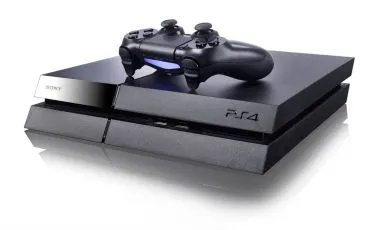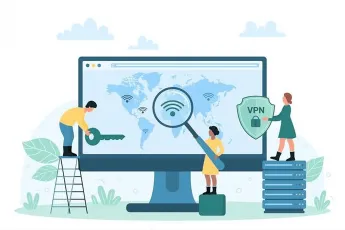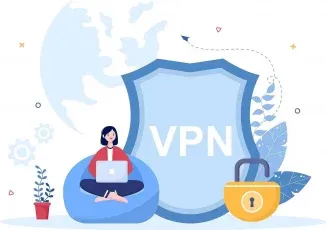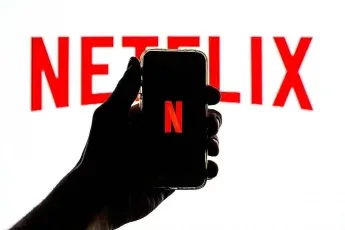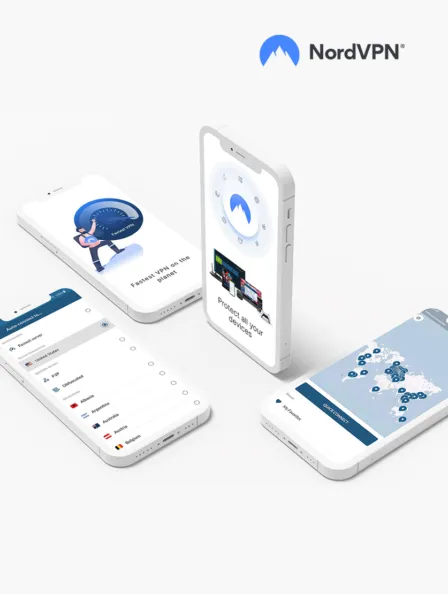With the evolution of technology, VPNs have developed many use cases, from accessing restricted content to preventing ISP throttling. However, many people still hesitate to use them because of common VPN myths, like decreased bandwidth, malware threats, and more.
But such things aren’t true!
Common VPN myths and misconceptions – Quick list
Running short on time? Here’s a quick list of common myths you must have heard (or believed) about VPNs.
- VPN leads to an unstable internet connection.
- I don’t need to pay for a VPN.
- VPN is only for tech-savvy users.
- VPN is for criminals.
- I don’t need VPN as I have nothing to hide.
- All VPNs are the same.
- VPN is illegal.
- VPNs suffice for online privacy and security.
- VPN can keep me 100% anonymous.
- VPNs don’t collect data.
- A proxy can offer the same benefits as a VPN.
- I can use Tor instead of VPNs.
- VPNs don’t need directions.
- VPNs are dying.
A VPN enables users to secure their internet connection through the server controlled and run by the service provider. It encrypts your data and ensures that the information you share with others remains private.
That’s how the tool protects you online in various circumstances. For instance, VPNs let you use public hotspots without worrying about your information getting leaked or hacked.
But what’s important to note is that not all VPN providers offer the same security features. Some are better and more secure than others. Whereas some other providers simply guise themselves as VPNs while providing nothing worthy in effect.
That’s the reason so many misconceptions have developed about VPN functionality, usefulness, and purposes.
So, this post will walk you through the top VPN myths and their reality.
VPN myths and misconceptions
Below you go with some of the biggest and the most common myths about using a VPN service debunked with facts.
1. VPN leads to an unstable internet connection
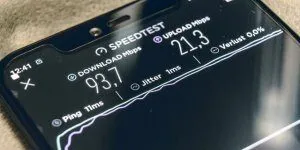
VPN encrypts your data by passing it first through its servers before sending it to the destination.
This process could slow down your internet, as it takes time to encrypt information. However, it doesn’t cause an unstable or poor internet connection.
The change in internet speed is not even noticeable when using a fast VPN service. Plus, if you subscribe to a paid plan, rest assured you will get a fast and secure network.
In some cases, VPN can even speed up your connection. Such circumstances include when ISP is throttling your internet speed for specific traffic. For example, many ISPs worldwide throttle users’ speed when torrenting or streaming.
The internet speed also depends on the service provider and the country.
If you are using a VPN on the other side of the world, you should expect low internet speed. However, it doesn’t happen in general. All it takes is to make sure you connect to a server close to your location.
So, VPN does not cause an unstable network or poor internet connection. It’s just one of those myths that aim at defaming VPN services.
2. I don’t need to pay for a VPN

You must have heard the saying, “you get what you pay for.” Unfortunately, it applies to VPNs, too; no true VPN service is available for free.
Free VPN service providers do not tell you how they make money. While premium companies charge a premium fee, others, the free ones, earn by displaying ads.
Some cheap providers leak your information to third parties to make money.
If you don’t want to compromise your connection quality and security, consider choosing a paid VPN plan. Paying for a VPN service is worth it, as such VPNs are safe. And, of course, you don’t have to worry about your budget as you can easily find many good VPN services for cheap.
Here are a few ways how free VPNs make money:
Selling your information
Advertisers and brands need your information to grow their audience and offer personalized services. So, they are always up to pay for this private information. VPN companies can make money by selling this information to these brands. And they have been caught doing exactly that in the past.
The primary purpose of using a VPN is to protect your private information. There is no point in using a VPN when your information is intentionally leaked to third parties. It is better to pay a few bucks for a VPN than to lose your privacy.
Free VPN bombards you with ads
The ads that keep popping on your screen aren’t only annoying, but these are the advertiser’s tricks to sell their product or get you to their landing page. Of course, VPN companies get paid for displaying such ads.
Another essential thing to note is that the VPN service providers claiming to offer a free internet connection can trick you into paying for it. Usually, these are free trials that last only a couple of days.
Once the free trial or quota expires, the company asks you to pay for the product to enjoy the benefits. Therefore, as a precaution, you must pay special attention to the terms and conditions of the VPN before signing up.
3. VPN is only for tech-savvy users

“VPN is a complex technology that only tech geeks can understand.” Now that’s another misconception frequently raised with common VPN myths to distract users from adopting this technology.
The complexity of a VPN depends on the service providers you choose. For example, ExpressVPN and NordVPN, the best VPNs out there, have a clean and intuitive user interface that offers reliable services. You can also customize your plan and connection easily. Besides, they have qualified and trained assistants willing to provide support round the clock.
The VPN technology is developed keeping in mind the regular users. You don’t have to research or learn the VPN fundamentals to get going if you select a good provider. Most importantly, you don’t need to know how it encrypts the data and how the VPN server transmits the information.
All you need to do is select the best plan. Once you have activated the VPN on your device, it will be up and running within a few seconds. Some VPNs are super simple to configure and use.
You don’t even need basic knowledge of this technology to start. As long as you have collaborated with the best VPN service providers, rest assured that the configuration will be super simple, forgetting all the myths.
4. VPN is for criminals

One of the common wrong concepts about VPN use cases is that it is for criminals and hackers.
Undeniably, many hackers and cybercriminals use VPN technology to access people’s personal information. However, they use it illegally. Whereas VPNs are meant to provide users with privacy lawfully.
People living in a state with no strict censorship laws think they don’t need a VPN. But they feel the need for it when traveling abroad.
That’s because a VPN enables users to prevent geo-blocks in certain regions. Once you cross the international boundaries of a state with strict censorship laws, you will no longer be able to watch movies or videos online. Many censorship regulations can restrict online video calling services, as well. That’s when VPN services come in handy.
Besides, people have a habit of connecting to public WiFi. Hundreds of people connect their devices to the airport hotspots.
It sounds tempting to use public WiFi, especially when it isn’t protected with passwords. However, you can never be sure that WiFi connections are 100% secure.
Surprisingly, anyone with basic IT knowledge can easily hack your smartphone and access important information, like your passwords, banking details, and other sensitive data. But they predominantly fail when you protect your device’s IP address with a VPN.
In short, this technology is a must for entrepreneurs, journalists, and professionals who store sensitive data on their devices. VPN is also useful for students studying abroad (especially in a state with strict censorship laws).
5. I don’t need VPN, as I have nothing to hide

Many people living in repressive censorship states know the importance of VPNs. So they use this technology to hide their information from authorities.
That leads us to an important question. How will VPN be useful for law-abiding citizens that don’t want to hide anything from Internet Service Providers or the surveilling authorities in their country?
First, you must know that VPN isn’t only for privacy. It is a security tool that helps prevent hacking and protect your data from snoopers.
Cybercrimes are not uncommon these days. For example, hackers can even infiltrate your device and steal your private information using unsafe public WiFi. Therefore, VPN is necessary for everyone who uses their smartphones and laptops for internet banking, sharing personal information, and storing sensitive data.
The technology boosts security and makes it easier to transfer information in encrypted form. So, even if you have to hide nothing from the government or local state authorities, you must use VPN services for privacy.
With the increasing cyber crimes, securing your network and information with a quality VPN is essential. That’s because there is no guarantee that the authorities or ISP will safely use your private information.
6. All VPNs are the same

It is yet another VPN misinformation. The primary function of the VPN servers is to make your IP address anonymous and your browsing history private.
That’s pretty much what most types of VPN service providers offer.
However, modern companies have started to add more features to the package.
If you sign up for the latest VPN plans, you will get malware protection, data encryption, and multiple connections. So you only need to find the best VPN provider with a plan that works for you.
7. VPN is illegal

VPNs are not limited to watching censored content in states with strict censorship laws. Technology is essential for your privacy and security.
If you use a VPN to access forbidden content otherwise censored in your country, then this technology might be considered illegal.
However, that’s only for people who want to access the apps and websites restricted in a particular country.
VPN, in general, is considered legal and safe. This technology’s main application is to protect your information and provide you with a secure and reliable connection.
Many people falsely believe that VPNs are used by criminals and hackers to hide their crimes and other illegal activities from the government. However, VPNs serve a lot more privacy purposes. Hundreds of thousands of people buy a VPN plan to browse websites, download apps, and share information safely.
8. VPNs suffice for online privacy and security
Although, many advanced VPNs offer additional features like parental controls, ad and malware blockers, and anti-tracking add-ons. However, they typically lack the specific technology needed to protect you against sophisticated malware infections, data breaches, and other cyber threats due to human error. So, you will still need to maintain your antivirus, firewall, and other essential security solutions on top of using a VPN.
9. VPN can keep me 100% anonymous

As explained, VPN service providers do everything they can to keep your identity anonymous. But they cannot guarantee 100% protection. Security breaches are not unusual.
Even if you combine VPN services with other security protocols, hackers can still infiltrate your device and steal your private information.
However, it needs tech geeks and professional hackers to access a device secured with VPN servers.
The following are the conditions when the VPN might not offer 100% security.
- If you use a compromised service: You need to be extra careful when using unsecured websites and apps. VPNs can restrict hackers from accessing your data. However, if you use web services that don’t have high-security protocols, VPNs can’t help protect your information.
- It may not protect your device from social engineering: Scams are designed to bypass all kinds of security measures on your device. Now, if you let these scammers access your phone, VPN can’t protect your data. These malicious links and data can easily bypass the firewall and antivirus software.
- VPN doesn’t protect your data if you share it intentionally: Facebook, Google, social media, and eCommerce platforms require you to register an account using your personal information. No security tool can protect the data you have shared with your consent. You must avoid apps that look unsafe.
- VPNs may or may not protect your device from malware: Most hackers use malicious links to access your system. They can also send a file or unsafe message through email. There isn’t much VPN can do to protect your system if the hacker gets access through malicious links. However, some VPN service providers, such as ExpressVPN and NordVPN, can block apps, software, and websites containing malware or other viruses. Consider combining ExpressVPN with the best antivirus software for the best protection.
10. VPNs don’t collect data
Websites of most VPNs are plastered with no-logs claims, meaning they don’t retain any of your data. If they keep logs, anybody can see what you are up to online, including your ISP, government authorities, and hackers. Without the log records, a search for your information will be futile.
However, a VPN can’t have a completely no-logs policy as the internet doesn’t work that way. In one way or another, your connection is recorded. Even the most robust VPNs will delete the logs immediately after they are made. So, although it isn’t entirely true, the ‘no-logs’ claim sounds good for marketing.
11. A proxy can offer the same benefits as a VPN

Many people use VPNs and proxies synonymously. However, they both offer different sets of functions.
Proxies can hide your IP address, but they cannot protect your data or encrypt private information.
Besides, proxies are pretty unsafe. Even if they provide anonymity to the user, these services hardly offer a stable and good internet connection.
On the other hand, a VPN isn’t only safe, but it does wonders regarding your privacy and security.
Once you have found a reliable VPN service provider, rest assured that the VPN server will encrypt your data and protect your system from unauthorized access.
12. I can use Tor instead of VPNs

Like proxies, people also frequently confuse Tor with VPNs, considering the two interchangeable. But again, this is merely an addition to the common VPN myths. In reality, the two are different, have different use cases, and are thus, supposed to be used together.
Indeed, Tor works similar to a VPN in that it also hides your IP, reroutes your traffic through different nodes, and makes you difficult to be traced.
However, what makes Tor different from VPNs is the core purpose to fulfill. Tor is meant to keep you anonymous, whereas VPNs protect your privacy.
For anonymity, Tor applies different measures that ultimately affect your browsing experience. Unless you have blazing-fast base speed, you’ll be annoyed with the slow speed on the Tor browser.
Besides, you expose yourself to the risk of surveillance since governments often track Tor users to detect suspicious activities. So, you may inadvertently attract negative attention from the authorities by using this network.
Above all, using Tor is somewhat tricky for naïve users. Given that it’s the direct gateway to the dark web, you step into a world of notorious users who won’t mind preying on you. At this point, you need to ensure security, for which you should ideally use a VPN. But it also means you have to bear with a further decrease in browsing speed.
So, unless you are concerned about anonymity or plan to use dark web sites, the best approach is to use a VPN with your regular browsers. Or, for added safety, you can use secure browsers with a VPN.
13. VPNs don’t need directions

The way VPNs are advertised and often advocated, many people think of these tools as ‘self-guided” or “fire-and-forget.” But unfortunately, it’s one of those VPN myths that affect users’ VPN experience!
Although you don’t have to keep meddling with the tool’s settings to make it work, you can’t leave it on its own. That’s because you might frequently change your browsing habits and requirements, which would subsequently need your VPN to act differently.
For instance, when you have planned nothing else besides binge-watching your favorite Netflix series on the weekend, you can activate your VPN’s kill switch and keep streaming. But if you occasionally wish to access local news, you have to adjust the VPN settings to activate split tunneling and may have to turn off the kill switch.
Likewise, for businesses, full-tunnel VPNs may cause compliance issues or increased subscription charges if the employees use the VPN with organizational settings for personal browsing. So, here again, you need to adjust your VPN configurations.
14. VPNs are dying
Online privacy is a growing concern for all internet users nowadays as there has been an upsurge in government surveillance and internet censorship. Also, identity theft incidents have increased recently, which are usually triggered by tracing you online.
Interestingly, using a VPN largely addresses all such issues by masking your online identity, thus attracting more users every day. So, it is no surprise that VPN usage is rising globally and won’t stop anytime soon.
Conclusion
A VPN protects your private information, enables you to access uncensored content, and enhances your security. Specifically, it encrypts your data, rendering it inaccessible to unrelated parties, whether you use an unsecured public hotspot or a safe connection.
Knowing what this technology does, it is safe to say that a VPN is essential for all users today. But, the above-covered common VPN myths need to be busted for good. It is always wise to kill misconceptions around any product or service you use or opt to use before getting started.
